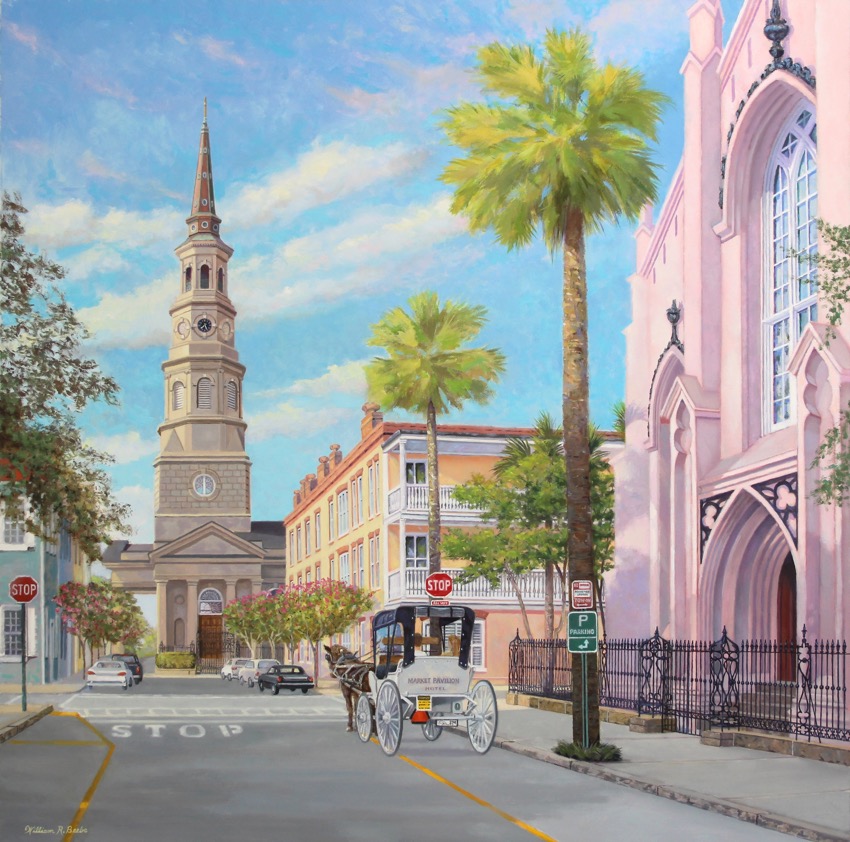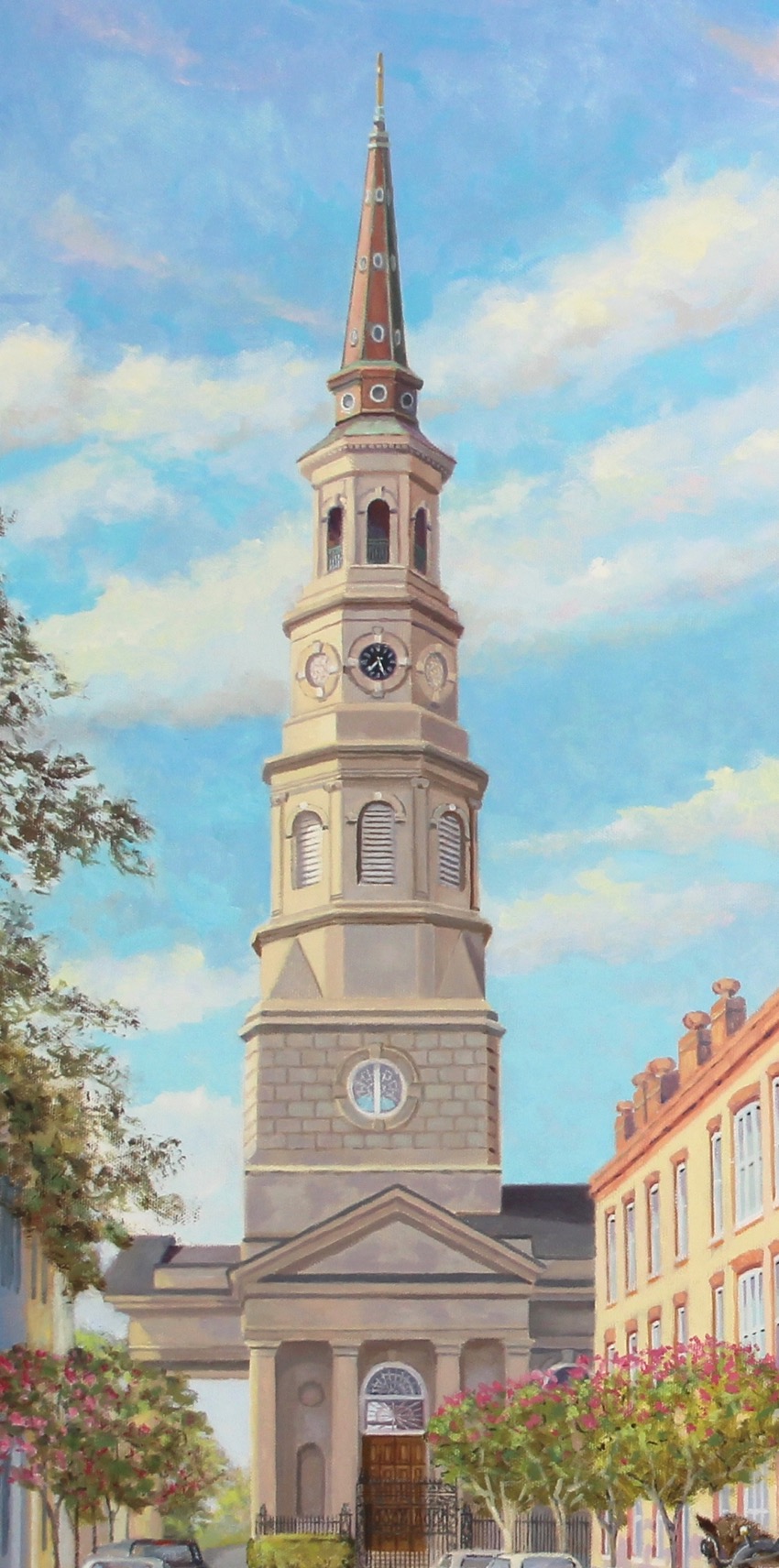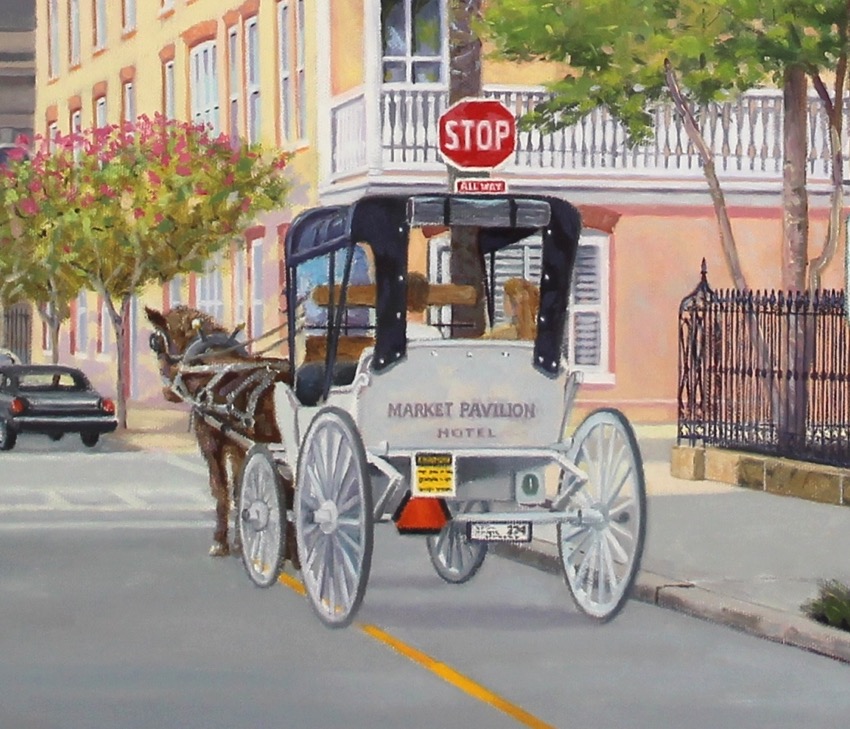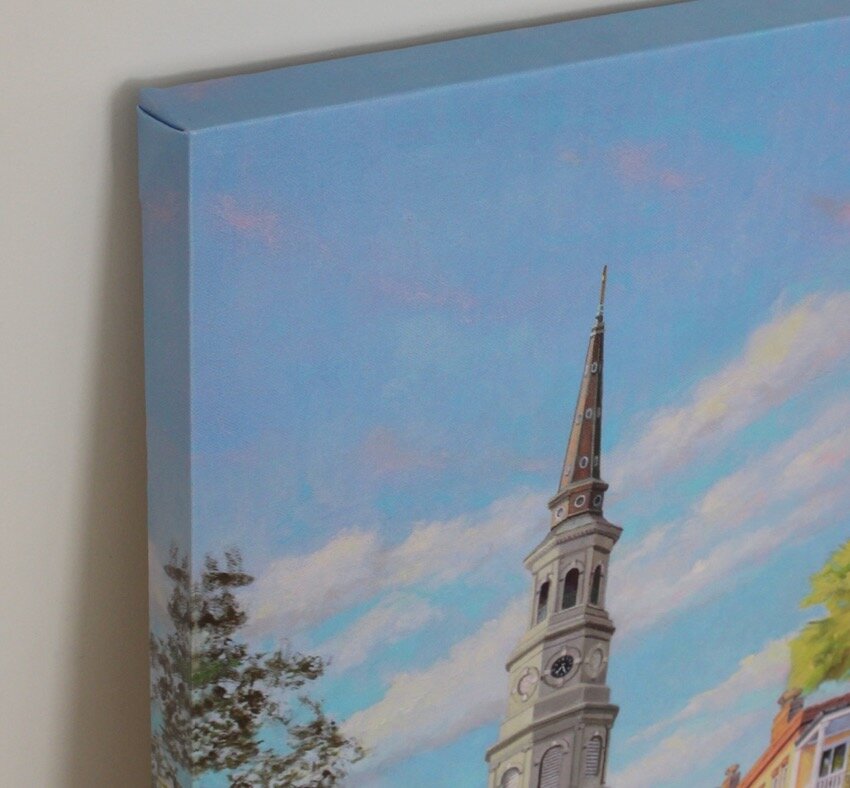The Corner of Church and Queen




The Corner of Church and Queen
Limited Edition (75) Giclées
30 × 30 (image size) Canvas wrapped giclée, $1800
30 × 30 (image size) Archival paper giclée, $900
Limited Edition (150) Giclées
20 × 20 (image size) Canvas wrapped giclée, $800
20 × 20 (image size) Archival paper giclée, $400
Custom sizes available upon request
The Corner of Church and Queen ~ Historic, charming Charleston!
It didn’t take two STOP signs and STOP painted on the road for me to stop and take in the view down Church Street. It was an immediate response. We had walked all around the French Quarter photographing charming scenes for potential paintings, and from many locations in the city I kept seeing the St. Philip’s steeple rise above the roof and treetops. When we arrived at this location I immediately was taken with the scene. When the horse and carriage pulled up and stopped to let its passengers take it all in I knew this would be my next painting!
I chose to paint it from this vantage point because it features two historic churches, St. Philip’s and the French Huguenot Church, on the aptly named Church Street. It was late in the day and the two churches were highlighted by the sun and framed by a beautiful blue sky.
The horse and carriage, although in the shadows, is situated prominently in the lower center of the painting and draws your eye back away from the strong perspective of the highlighted buildings and leads you down Church Street and into the painting.
As the passengers of the carriage listened intently to the driver speak about the historical significance of each building and of the location, I found myself wishing I could hear what he was saying. As I photographed the scene many other bystanders were also photographing it and admiring it.
The location is one of the most photographed locations in Charleston. Many artists have chosen to paint it. Some artists avoid painting it and think it too cliché, but I was drawn to it because to me it is a scene that is identifiably Charleston. It represents so much of what Charleston is about.
Charleston is known as “the Holy City”. Charleston originally welcomed all Christian Protestant denominations (with the exception of Roman Catholicism) and as a result a large number of church steeples and spires are visible throughout the city.
St. Philip’s Episcopal Church was originally established in 1681 where the current day St. Michael’s church is located. When it was destroyed by a hurricane in 1710 it was relocated to its current location. The current church building is a National Historic Landmark, built in 1836.
The French Huguenot Church was originally built in 1687, was destroyed in 1796 due to a fire, and the current Gothic Revival edifice was rebuilt in 1845. It too is a National Historic Landmark.
The horse and carriage rides are everyday sights in Charleston. Tourists travel from all around the world to experience Charleston and to absorb its unique history and culture. The carriage drivers share their wealth of knowledge and historical facts every day with the many tourists who decide to take the tour. The corner of Church and Queen Street is a frequent stop for the carriage drivers due to its historic significance and the magnificent view down Church Street.
Mix in palmetto trees and the crepe myrtles and one knows they are in the South (the palmetto tree being the state tree of South Carolina). The pastel colors of the Huguenot Church and the light, Naples yellow building are also colors more commonly found in the South.
This being my first Charleston painting painted as a resident of the area, I wanted to create a significant piece, one that captured some of the history, charm, and culture of Charleston.
